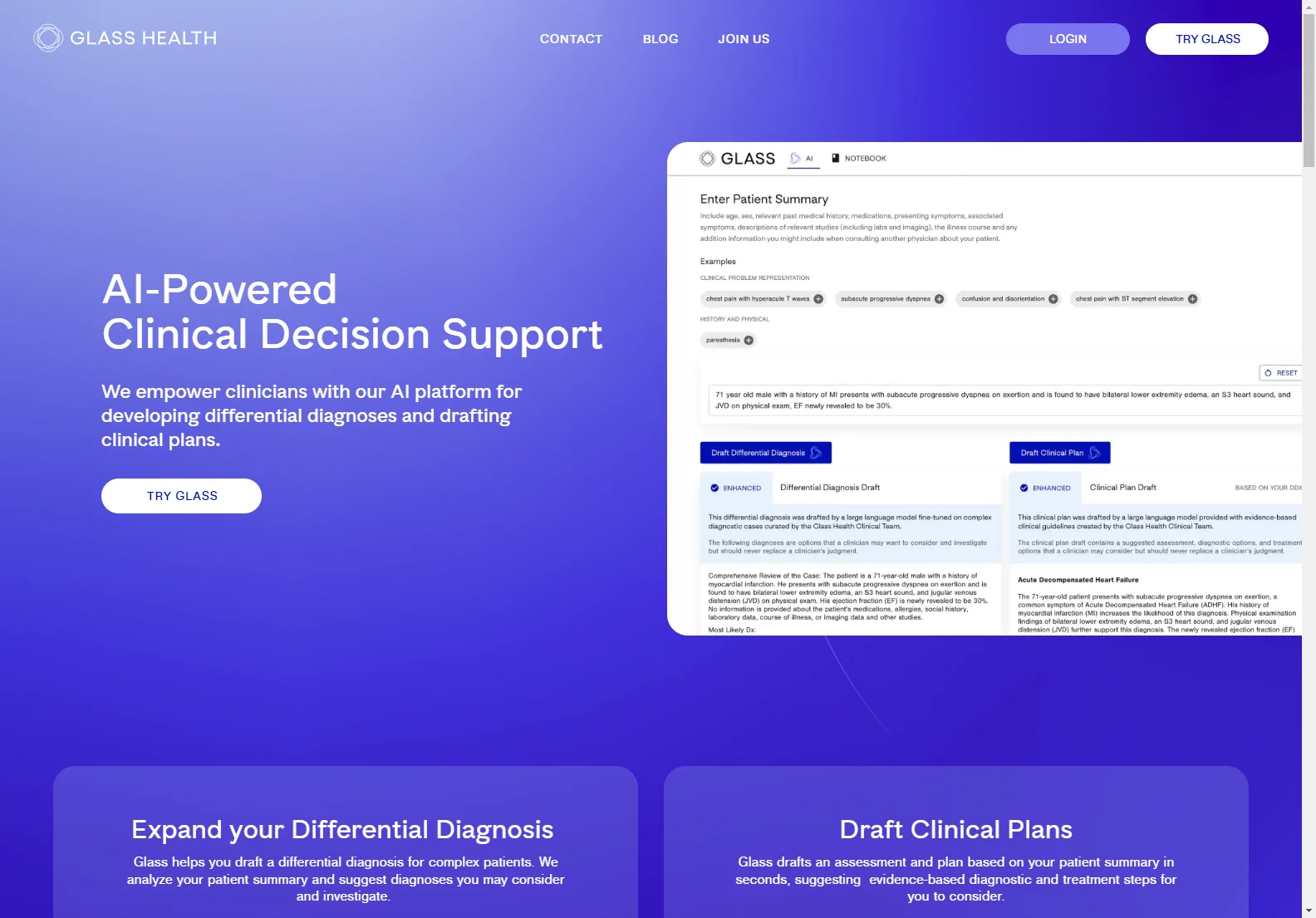Glass: AI-Powered Clinical Decision Support
Glass is an AI-powered platform designed to assist clinicians in developing differential diagnoses and drafting clinical plans. It leverages cutting-edge AI technology to analyze patient summaries and provide evidence-based suggestions, ultimately aiming to improve diagnostic accuracy and patient outcomes.
Key Features:
- Differential Diagnosis Expansion: Glass analyzes patient summaries to suggest potential diagnoses for consideration and further investigation, helping clinicians explore a wider range of possibilities for complex cases.
- Clinical Plan Drafting: In seconds, Glass drafts a comprehensive assessment and plan based on the provided patient summary. This includes evidence-based diagnostic and treatment steps to aid in decision-making.
- AI-Driven Insights: The platform uses advanced algorithms to process medical information and provide insights that may otherwise be missed, leading to more informed clinical decisions.
- Time Savings: By automating parts of the diagnostic and planning process, Glass frees up valuable clinician time, allowing for more focused patient care.
How Glass Works:
Glass's AI algorithms analyze patient data, including medical history, symptoms, and test results, to identify patterns and potential diagnoses. The system then suggests relevant diagnoses and treatment options, drawing from a vast database of medical knowledge and research. The generated clinical plans are designed to be comprehensive and evidence-based, providing clinicians with a solid foundation for their decisions.
Benefits of Using Glass:
- Improved Diagnostic Accuracy: By expanding the differential diagnosis and providing AI-driven insights, Glass helps reduce the risk of misdiagnosis.
- Enhanced Efficiency: The automated plan drafting feature saves clinicians significant time and effort.
- Evidence-Based Medicine: Glass promotes the use of evidence-based medicine by suggesting treatment options supported by research.
- Better Patient Outcomes: Ultimately, Glass aims to improve patient outcomes by facilitating more accurate and efficient clinical decision-making.
Comparisons to Other AI Clinical Support Tools:
While several other AI tools offer clinical support, Glass distinguishes itself through its comprehensive approach, combining differential diagnosis expansion with automated clinical plan generation. This integrated approach provides a more holistic solution for clinicians compared to tools that focus solely on one aspect of the clinical workflow. Furthermore, Glass's commitment to safety, ethics, and alignment with evidence-based practices sets it apart in the market.
Conclusion:
Glass represents a significant advancement in AI-powered clinical decision support. Its ability to expand differential diagnoses and draft clinical plans efficiently and effectively makes it a valuable tool for clinicians seeking to improve their diagnostic accuracy, enhance their efficiency, and ultimately, improve patient care.

